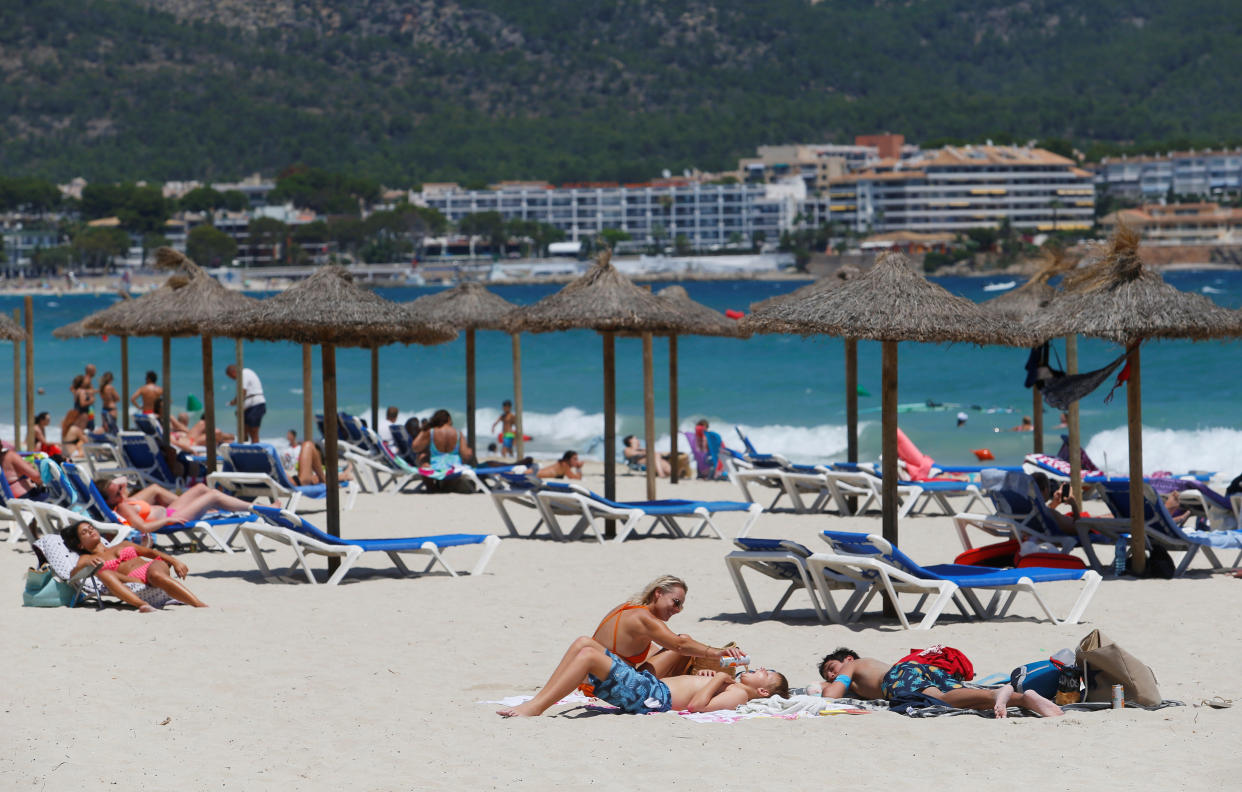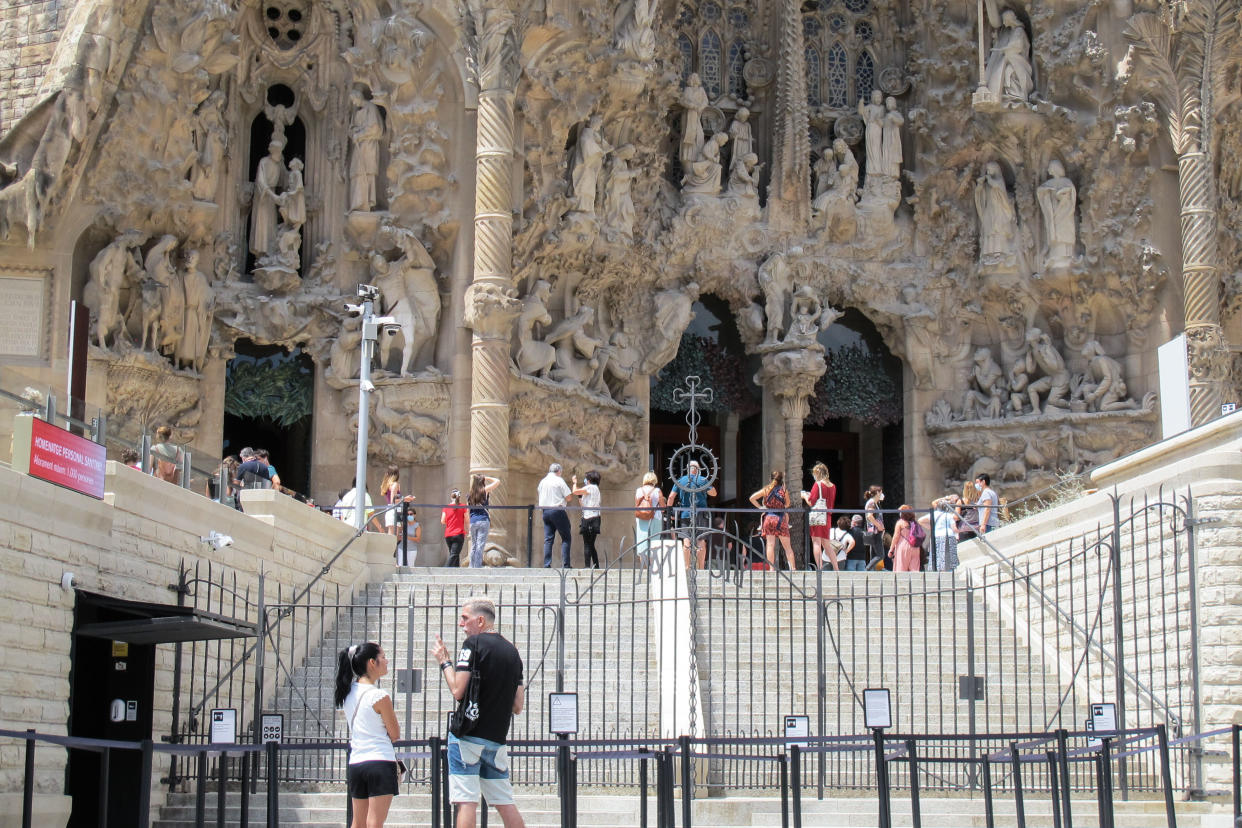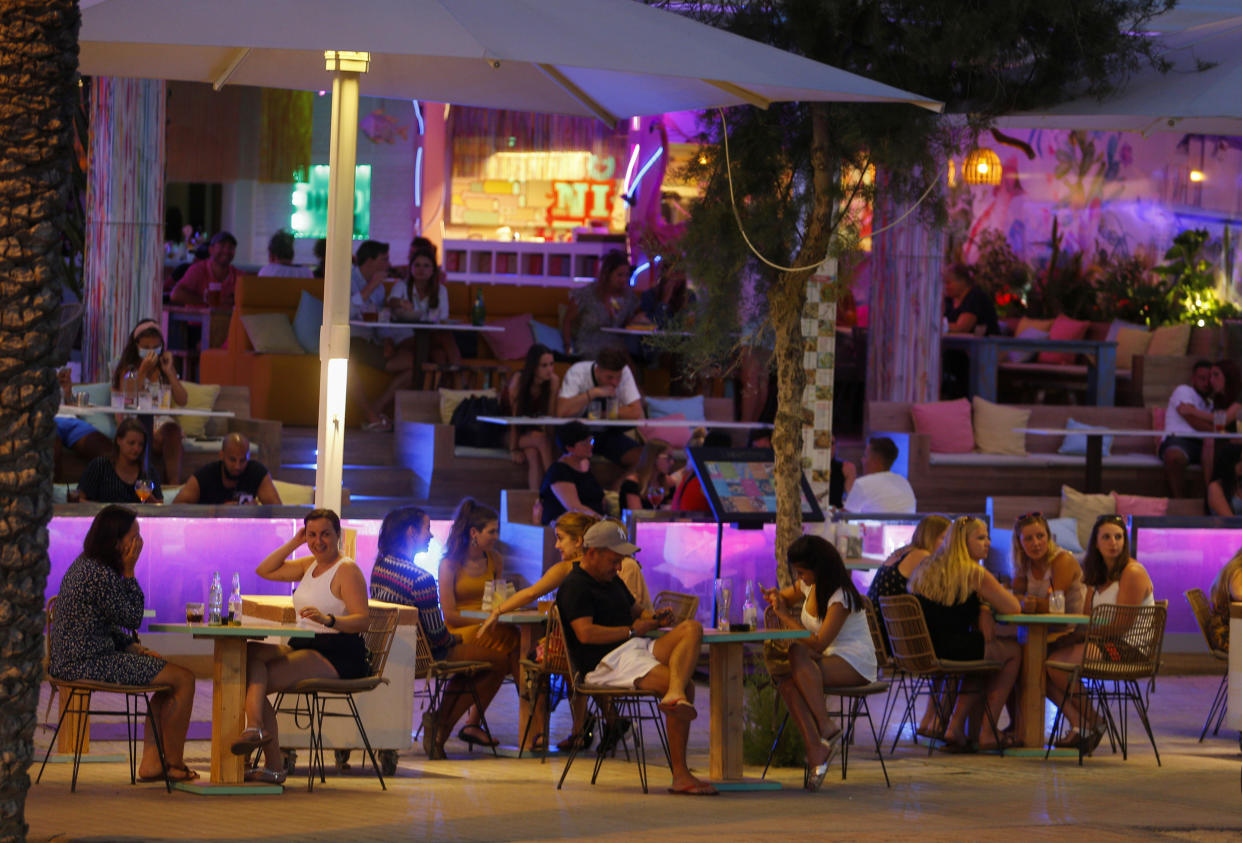Spain reports coronavirus spike with highest reported figures since May

Spain has reported the steepest daily jump in coronavirus infections in more than two months, just as the country welcomes millions of tourists from across the world for its summer season.
Thursday saw 580 new cases registered, up from 390 reported on Wednesday, with the regions of Aragon and Catalonia are leading the increase.
Authorities have urged some four million people in Catalonia, including its capital Barcelona, to stay home, appealing to people to act responsibly as the region battles a growing number of new coronavirus clusters.
The stay-home call stopped short of imposing a mandatory lockdown, but was the strongest measure a region has taken to returning people to home confinement since Spain emerged from a nationwide lockdown last month.
Gatherings of more than ten people have been banned.
Residents of Barcelona, its suburbs and the areas of Segria and Noguera, further away from the city, were urged to shop online and leave their home only to go to work, to visit a doctor or carry other essential activities.

“We recommend that people don’t move around if it’s not absolutely necessary,” Catalonia’s health chief Alba Verges told a news conference, saying most infections came from gatherings of family or friends.
“It’s very important to respect these measures now, it’s the best way to avoid a lockdown,” Verges said. “No one wants a full home confinement.”
Cultural and sports events will also be limited but museums will remain open in Barcelona, one of Europe’s most visited cities.
Bars and restaurants can keep working, but with a limit of half their usual capacity indoors, and with a 2-metre (6.5- foot) distance between tables outdoors.
More than 170 localised outbreaks have emerged across Spain since it lifted its nationwide lockdown - one of the strictest in Europe - on 21 June.
A recent nationwide survey revealed that one in 20 people in Spain have had coronavirus.

Catalonia has become the epicentre of new outbreaks, putting paid to plans of holidays to the region for many British tourists.
Spain’s health ministry said the number of cases confirmed over the past 24 hours in the region were 142, up from 91 the previous day. In the Aragón province in the east, the number of infections jumped to 266 from 160, according to the health ministry.

The Catalan health authority, which counts both confirmed and suspected cases, said the number soared to 1,293 overnight, the highest since at least May 18, when the counting methodology changed.
Barcelona - home to 1.6 million people and one of Europe’s most visited cities - has tripled its number of coronavirus cases from last week.
Authorities have already imposed tighter restrictions in three neighbourhoods of a Barcelona suburb with a population of 260,000.
On Thursday, the culling of almost 100,000 mink at a farm in Aragón was ordered after a farm employee's wife contracted coronavirus in May.
Her husband and six other farm workers have since tested positive for the disease.

The mink, bred for their prized fur, were isolated and monitored closely after the workers became infected.
But tests on 13 July showed that 87% of the mink were infected and health authorities ordered for all 92,700 of the animals to be culled.
Along with Madrid and Catalonia, Aragón is one of the virus hotspots in Spain.
More than 18 million British tourists visit Spain each year, accounting for a significant portion of the country’s economy.
The country has registered more than 28,000 deaths as a result of COVID-19, but a stringent lockdown policy brought the spread of the virus under control faster than in many other countries.
Coronavirus: what happened today
Click here to sign up to the latest news, advice and information with our daily Catch-up newsletter



